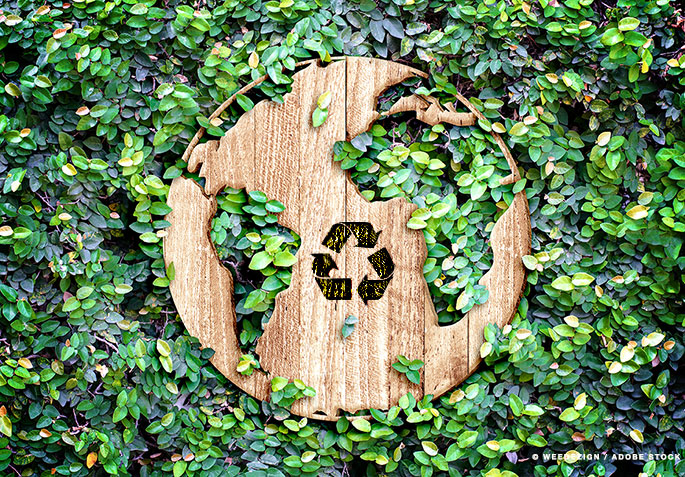Among the challenges and opportunities, a global population of 9.7 billion will bring to the world, resource allocation and use are going to stand out as some of the most critical. The recycling industry, with home and office recycling bins, is going to assume a larger importance. The industry will find ways to repurpose and reuse raw and manufactured materials with fewer resources. The food production systems around the world will adapt to new paradigms that do not allow for the degree of food waste we currently see on a global scale.
Both aluminum and glass recycling can be considered infinite–that is, the raw materials do not degrade significantly with the recycling process. But energy is used for the recycling and manufacture of new containers and products. Consider two new paradigm shifts to change the way we recycle and reuse aluminum cans and glass food jars:
- With water becoming a critical resource, stricter controls over water use will exist. Rather than the current system of a six pack of canned soda or juice or beer that can be purchased at the store, we have a standard reusable jug or cup. We can access water, coffee, juice, beer, or whatever we’re drinking in 2050, at sidewalk stands, coffee bars, and government water stations. We already have a burgeoning growler-system thanks to the craft beer movement, and many coffee shops let customers bring their own mugs. If we each had a mug for hot and for cold, and filled our them daily from public sources of drink found in our neighborhoods, buildings, and workplaces, the world would save significant quantities of natural resources.
- If glass food jars were required to be standard sizes and shapes, then recycling them could become mandatory, and the jars reused by industry without the resources expended to melt them down and make new. If communal cafeterias and kitchens replaced home cooking, the need for small-sized glass food jars would disappear, as would a significant amount of fresh produce waste.
Both scenarios are in the realm of science fiction, but then so is a global population of 9.7 billion! Forward thinking about resource use suggests that recycling, reuse, and repurposing is the only possible way we will have enough for everyone.





































































































































 Three Ways to Engage Teams and Clients to Maximize Your Recycling Program Engagement
Three Ways to Engage Teams and Clients to Maximize Your Recycling Program Engagement  How to Integrate Accessibility Into Your Sustainability Planning
How to Integrate Accessibility Into Your Sustainability Planning  Why Park Benches Can Promote Workplace Well-Being
Why Park Benches Can Promote Workplace Well-Being 
